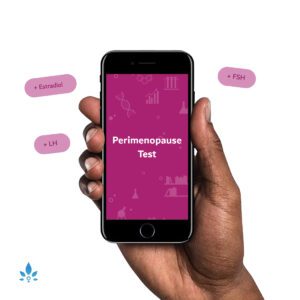Did you know that ‘menopause’ translates to ‘Age of Despair’ in Arabic? That label stops now with Nabta


Nabta Health celebrates women during their ‘Age of Hope’
You may notice a shift in the language we use for perimenopause, menopause, and post-menopause at Nabta Health; [Age of Despair] is now [Age of Hope].
You will see this evolution reflected on our Aya app, throughout our information hub and across all our communications. And it is our hope that with this shift, menopause, a natural biological process in every woman’s life, will start to be celebrated as a time of renewal, transformation, and even improved social status.
Age of Hope. What’s in a word?
Nabta supports women throughout their healthcare journey. We help women overcome physical and mental barriers and enable them to lead a healthy and confident life. And we celebrate every stage of a woman’s life, from periods and puberty, to pregnancy, postpartum, perimenopause and beyond.
Doing this effectively sometimes means challenging taboos, negative or damaging beliefs, and overcoming stigmas. And in certain cases, it means championing more positive ways to communicate universal experiences. We recognise the part language plays in shaping and defining how whole societies think about a subject.
Nabta Health champions a positive women’s health experience
51% of the world’s population will go through menopause and each woman’s experience of how menopause affects her own mind and body is deeply personal and unique to her.
This is mirrored in cultural attitudes to menopause, which differ across the globe, and in some cases across communities.
Studies show that our culture and its influence on the way we approach menopause has a powerful effect on how women experience emotional and physical perimenopausal symptoms. And whether menopause is seen as a positive or negative event.
In those societies with a more positive cultural attitude towards menopause, and where aging is viewed positively, women report fewer symptoms of menopause.
In these societies the post-reproductive years are widely viewed as a positive transition into a stage of life crucial to society: older, experienced, and wise women with energy to spare.
Move over ‘age of despair’
For many years the word for ‘menopause’ in Arabic has literally translated to ‘age of despair’. This expression is thought to be linked with the end of childbearing years, as if a woman’s value is defined by her youth and fertility. Her usefulness and attractiveness linked with her ability to produce children. The message of misery and hopelessness was hard to ignore.
Finding optimism in menopause
Nabta hopes that in challenging this limiting terminology, and all its negative connotations, we can begin to celebrate this new stage in a woman’s life as one of hope, regeneration, and renewal.
Nabta’s initiative is reflected by a recent campaign in Saudi Arabia. A sanitary products brand aimed to change the perceptions of menopause in the Middle East because 81% of Saudi women surveyed believed the word for menopause should be changed to something more positive such as, “renewal, reflection, wisdom or creativity”.
Nabta is reimagining women’s health. From periods and puberty, to pregnancy, postpartum, perimenopause and beyond, Nabta Health offers a new, holistic model of healthcare that is built around you and your health goals.













































